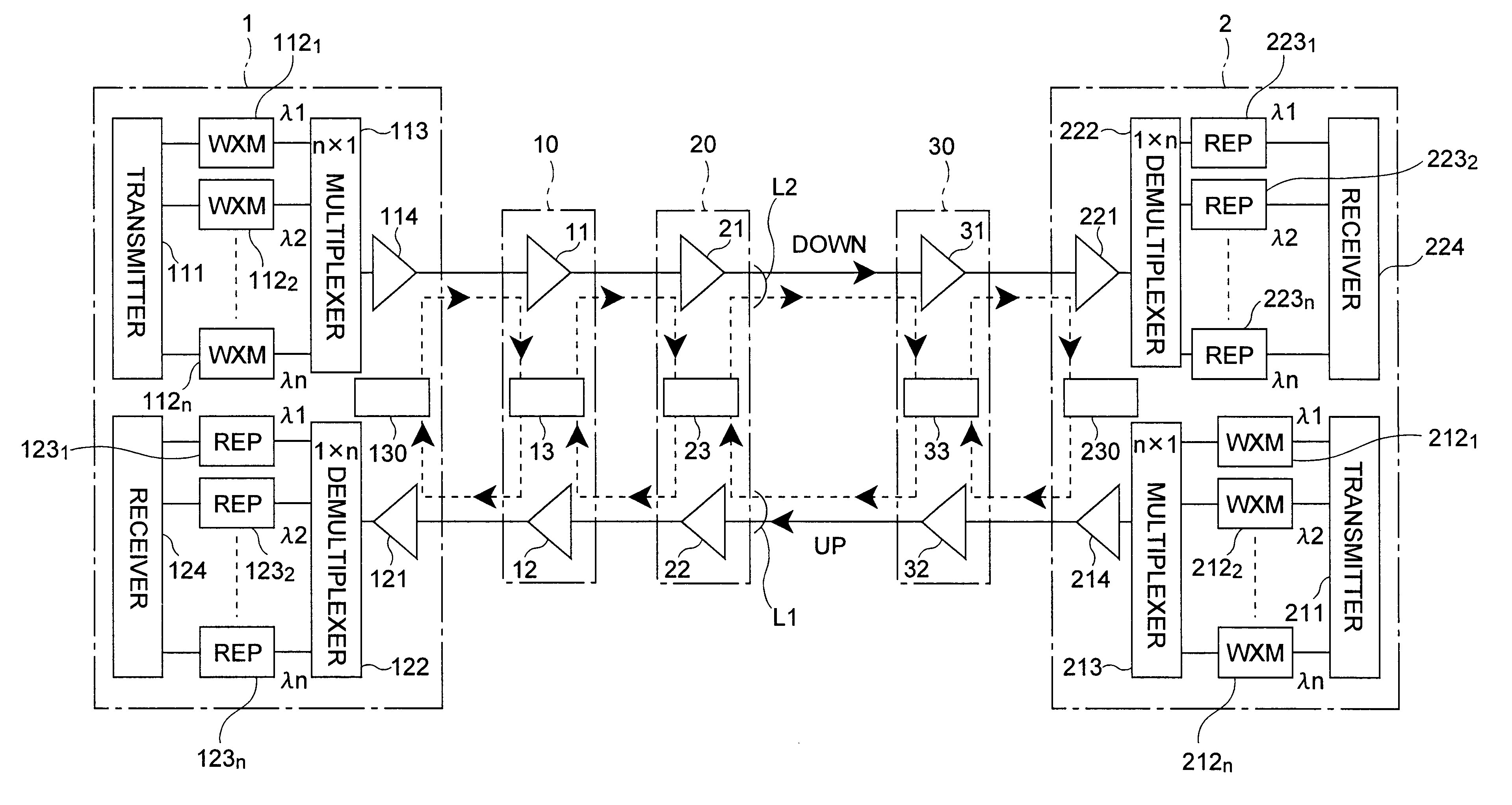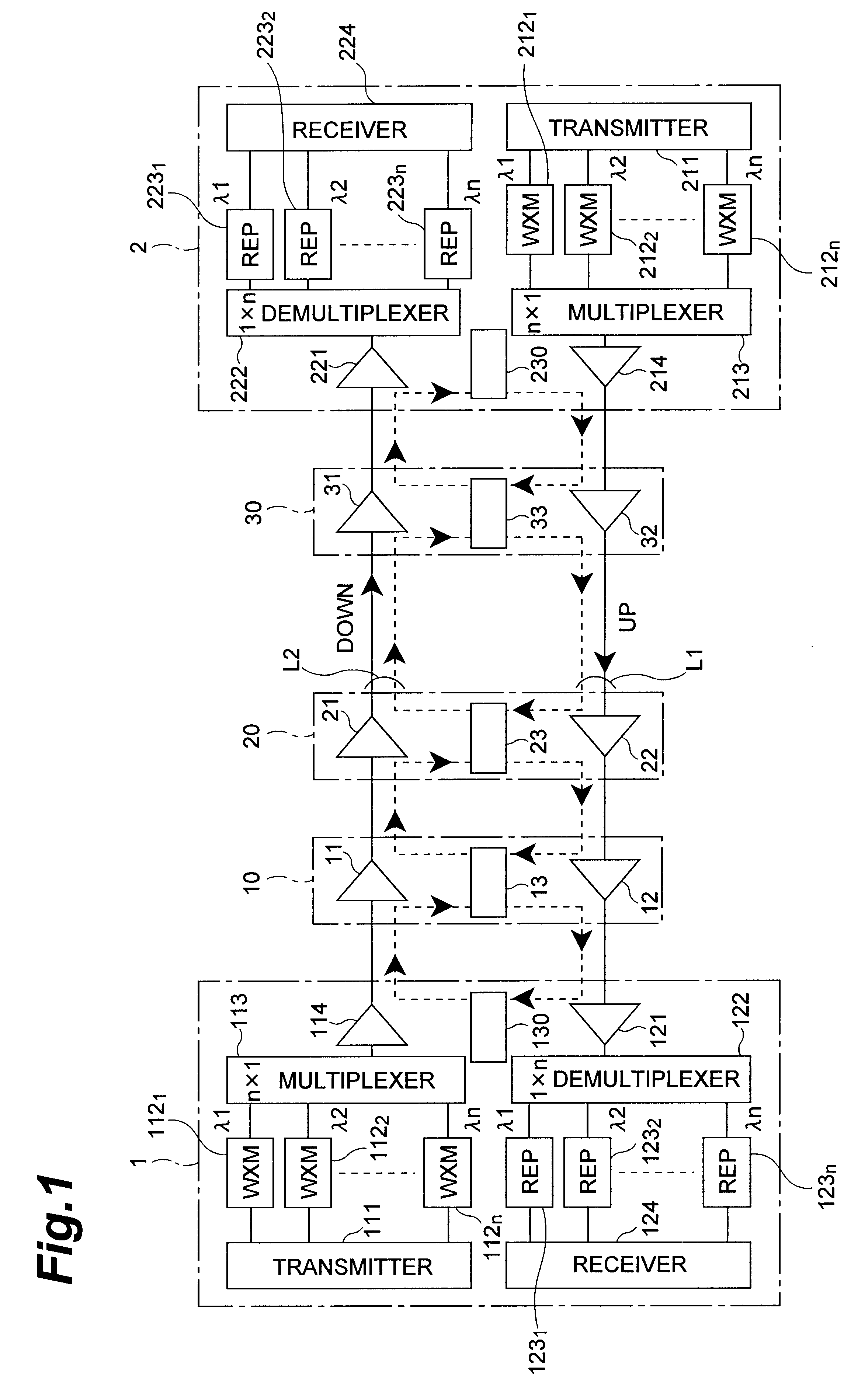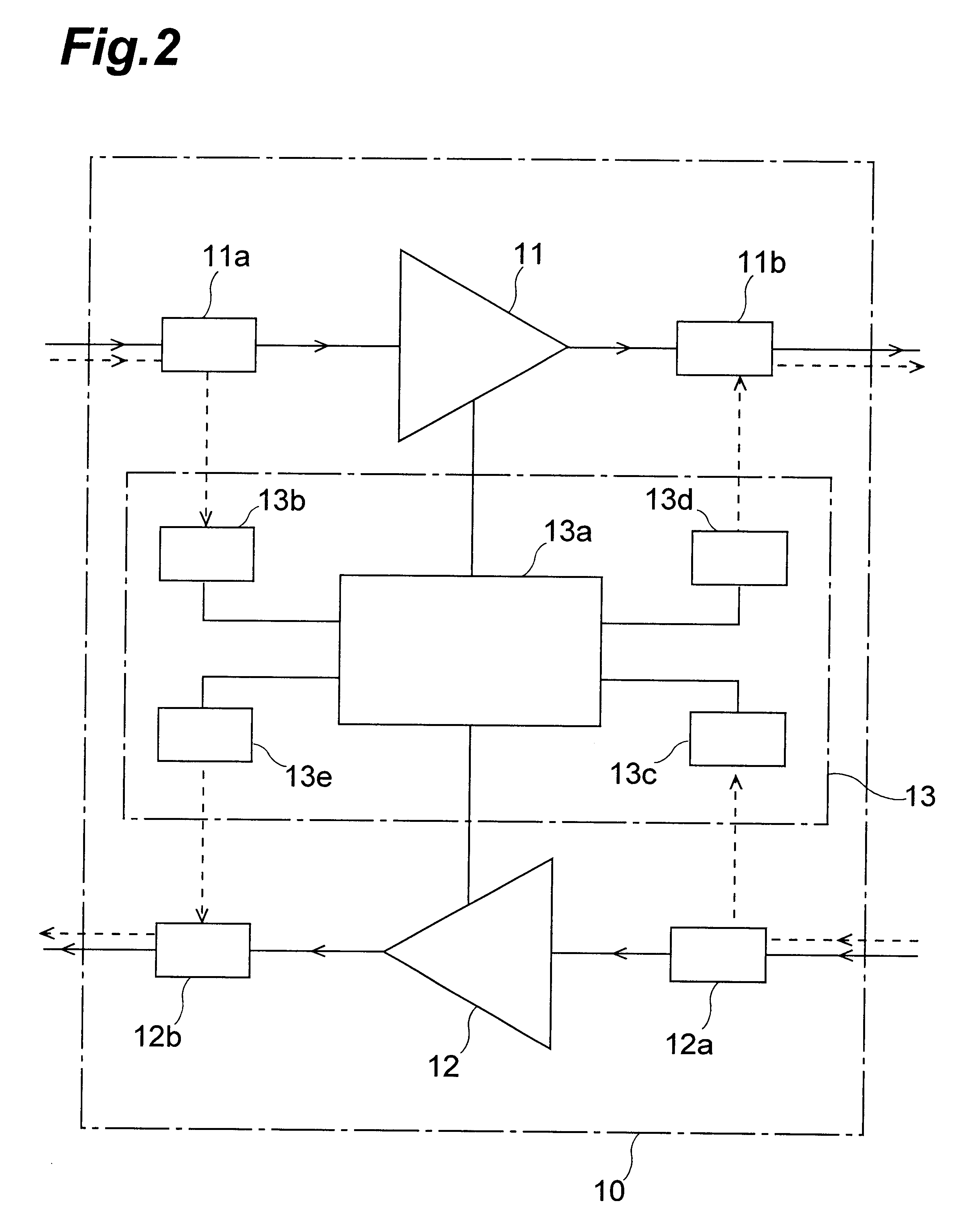Optical amplifier repeater system
a repeater and optical amplifier technology, applied in the direction of electromagnetic repeaters, fault recovery arrangements, transmission monitoring, etc., can solve the problems of inability to generate a break and thereby not to be detected, and inability to detect abnormalities with a sufficient intensity
- Summary
- Abstract
- Description
- Claims
- Application Information
AI Technical Summary
Benefits of technology
Problems solved by technology
Method used
Image
Examples
Embodiment Construction
In the following, preferred embodiments of the present invention will be explained in detail with reference to the accompanying drawings. For easier understanding of the explanation, constituents identical to each other among the drawings will be referred to with reference numerals identical to each other whenever possible, without their overlapping descriptions repeated.
FIG. 1 is a configurational view of the optical amplifier repeater system in accordance with the present invention. This optical amplifier repeater system transmits signal light bidirectionally between a terminal station 1 and a terminal station 2, whereas repeater stations 10, 20, and 30 are disposed on an optical transmission line between the terminal station 1 and the terminal station 2. The optical transmission line is constituted, for example, by an optical fiber, and comprises a transmission line L1 for the direction (hereinafter referred to as "downstream direction") from the terminal station 1 to the termina...
PUM
 Login to View More
Login to View More Abstract
Description
Claims
Application Information
 Login to View More
Login to View More - R&D
- Intellectual Property
- Life Sciences
- Materials
- Tech Scout
- Unparalleled Data Quality
- Higher Quality Content
- 60% Fewer Hallucinations
Browse by: Latest US Patents, China's latest patents, Technical Efficacy Thesaurus, Application Domain, Technology Topic, Popular Technical Reports.
© 2025 PatSnap. All rights reserved.Legal|Privacy policy|Modern Slavery Act Transparency Statement|Sitemap|About US| Contact US: help@patsnap.com



